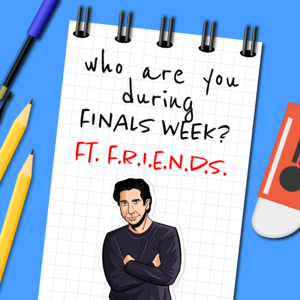What Fairytales Never Told Us
Once upon a time, there was a princess. She was beautiful, sang to birds and wandered through the forest with her animal friends. One day, while she was singing by a river, she heard the voice of a prince. He sang beautifully, harmonizing well with her voice and after one song, she was in love. The prince, smitten with the beautiful princess, asks her to marry him and she says yes! She was so excited, because she has been dreaming of this moment her entire life. She read about it in books and secretly prayed to find her own true love every time she watched her friends get married. She’ll finally get the happily ever after she was meant to have… or so she thought.
The prince, now the king, was horrible. He never talked to her, only gave her shallow compliments. He never wanted to get to know her and normally just acknowledged her presence when he was showing her off to his friends. When she asked him about it, he would just say that being a king was a lot of responsibility and that she should not be worried because he loved her. Always spewing out promises of walks in the garden, a lovely candlelit dinner or simply a lazy afternoon in the library. Alas, none of these promises came true. Eventually, she got fed up with his attitude and decided to go out to make friends. She made friends with the baker, the seamstress and the sheep herder. When they hung out, she was very happy and had lots of fun, more fun than she ever had with the king. All was going well until the guards told the king. It would be an understatement to say he was furious.
He screamed, he yelled, he threw flower vases and chairs, broke mirrors and eventually directed his anger at her. When he was done, he would wipe the tears off her face and whisper words of apology.
“I’m doing this because I love you.”
“I get jealous when you’re not next to me.”
“You love me, don’t you? Then why do you want to spend time with them instead of me?”
“I love you. Stay with me please. I promise I’ll get better.”
And because she loved the prince, she believed his words and stayed.
I’m sure many of us grew up with movies like “Cinderella”, “Snow White”, “Sleeping Beauty”, and many other princess movies. Before anyone gets out their torches and pitchforks, I should clarify that these movies or any other favorite romantic movie, book or song are not all bad. Simply, it gives us the most idealized version of romance. It tells tales of leaving our worries behind, finding happiness and never having to be alone again. Who would say no to that?
The problem with this painted picture is that it forgets to leave room for reality. We often use these stories to escape our own lives and media gravitates to using romance as an end-all, be-all solution. It does well for the intended purpose, but it often leaves the audience with a very warped sense of love. The problem normally occurs when entering a relationship. It is very different to daydream about a future partner who is so gorgeous, funny and just gets you, because they are more amazing than finding someone more realistic and working out the mechanics of being in a relationship.
The reality of love is that it is messy, complicated and takes work. Even after all of that, sometimes there are moments where love does not work. Suddenly finding that the stories we were told as children are not actually true can be quite shocking. The fact there is no beautiful princess waiting to be rescued, prince charming is not always charming and happily ever after is not always happy.
It does not help that media often romanticizes many ideas and behaviors that are unhealthy and toxic. Certain tropes used in romantic novels and films are very popular for their appeal. Does this sound familiar? Renowned local bad boy is a lone wolf who needs no one meets Little Ms. Perfect. A straight A student who is on the student council, and never goes to parties. The two are from different worlds but somehow fall in love. The bad boy has a secret sweet side he only shows to the girl and she learns how to break away from the strict confines of societal expectations.
Personally, what automatically comes to mind is “Grease”, “Rebel Without a Cause” and “Lady and the Tramp”, but I am sure that there are many more examples. All these share a great story line with feel good moments, the characters are appealing and make us want root for them. It ticks the boxes of “defying” expectations. They are popular for a reason. The truth of the matter is, there is nothing inherently wrong with these movies, but when we start to blur the lines between fiction and reality, it poses a problem.
Many might see a troubled teen and automatically want to “fix” them. That by loving someone, it erases their personal issues and pain, but then when they realize that is not the case. Many tend to get disappointed or upset when a relationship does not go the way we envisioned. People are not things to be fixed and their problems are not anyone’s responsibility to solve but their own. There is a fine line between supporting someone and becoming a sole pillar of support. It is also important to note that sometimes there is no soft side to the bad boy. When someone is rude and arrogant, sometimes they are just rude and arrogant. The mysterious bad boy with a soft side trope now gives a pass to anyone who acts similar and makes a toxic characteristic attractive. Many tend to now ignore the red flags because we have been programmed to try and see potential rather than what is in front of us. We fall in love with what we believe the person can be rather than who they are.
Another popular trope would be the protagonist, typically female, but not always, sees themselves as plain and ordinary. They are presented as someone who is not special and not worth taking note of. Then comes in the love of their life, and it is through this romantic relationship that they become complete and find self-worth. Sounds wholesome, right? My question is, why does the character only find self-worth because their partner deems them to be worthy of that.
Rather than use the relationship as a vehicle for the protagonist to learn how to love themselves outside of their partner, it is very commonly seen that the character stakes their own self-worth based on their partner’s love. An example of this would be “Shrek”. I love this movie and it pains me to add it, but a major problem I have with the movie is when Fiona realizes her true form is staying as an ogre. She is confused and asks why she is not beautiful, but because Shrek told her she is, then she must be. Understandably, the whole point of the movie was about inner beauty, but it would have been nice to see Fiona accept however she ends up looking, without needing the validation of Shrek.
Last trope would be the protagonist who is different from everyone else. Someone who is special and unique but seen as an outsider for their differences. Lo and behold, here comes their romantic interest swooping and they no longer find themselves alone. An example would be “10 Things I Hate About You”. The movie is loosely based off Shakespeare’s “Taming of the Shrew”. Leading character Kat is into literature, has a witty and acerbic attitude, and holds no similar interest to those of her female peers. A complete foil to her sister Bianca, who is accepted and loved by all. This makes Kat an outsider. Then, when her romantic interest comes in she feels like someone finally sees her. That she is not alone, and suddenly she becomes a lot more agreeable and amenable than before.
The problem with this trope is not that the outsider found love, rather the self-imposed exile the character gives themselves. They are ones who believe they are so different that no one would accept them for they are. Then here comes someone who does like them, but we see throughout the story that the protagonist, whose main character trait was their difference to their peers, loses that. Simply put, they start to become “normal” because they are now loved. What makes the character unique and special gets lost within the romantic scenes and mushy feelings. It gives off this impression that one’s differences can be cured through love rather than having someone love those differences, despite the intentions of what these movies and stories are trying to convey.
There are many other tropes and cliches that this article could cover, but the point then would be redundant. The point is that as nice and appealing as a lot of these stories are, it is important to remember that life is not as simple as the movies we watch or the books we read. To assume that media like these examples are accurate representations of real life is dangerous. Many genres like romance or fantasy are forms of escapism from the harsh realities we experience in our day-to-day lives, so assuming that these stories are real-life makes us blind to those realities. In Oscar Wilde’s quote, “Life imitates Art far more than Art imitates Life,” he points out that many try to manipulate the world around them to fit their views rather than change their views based on their environment.








